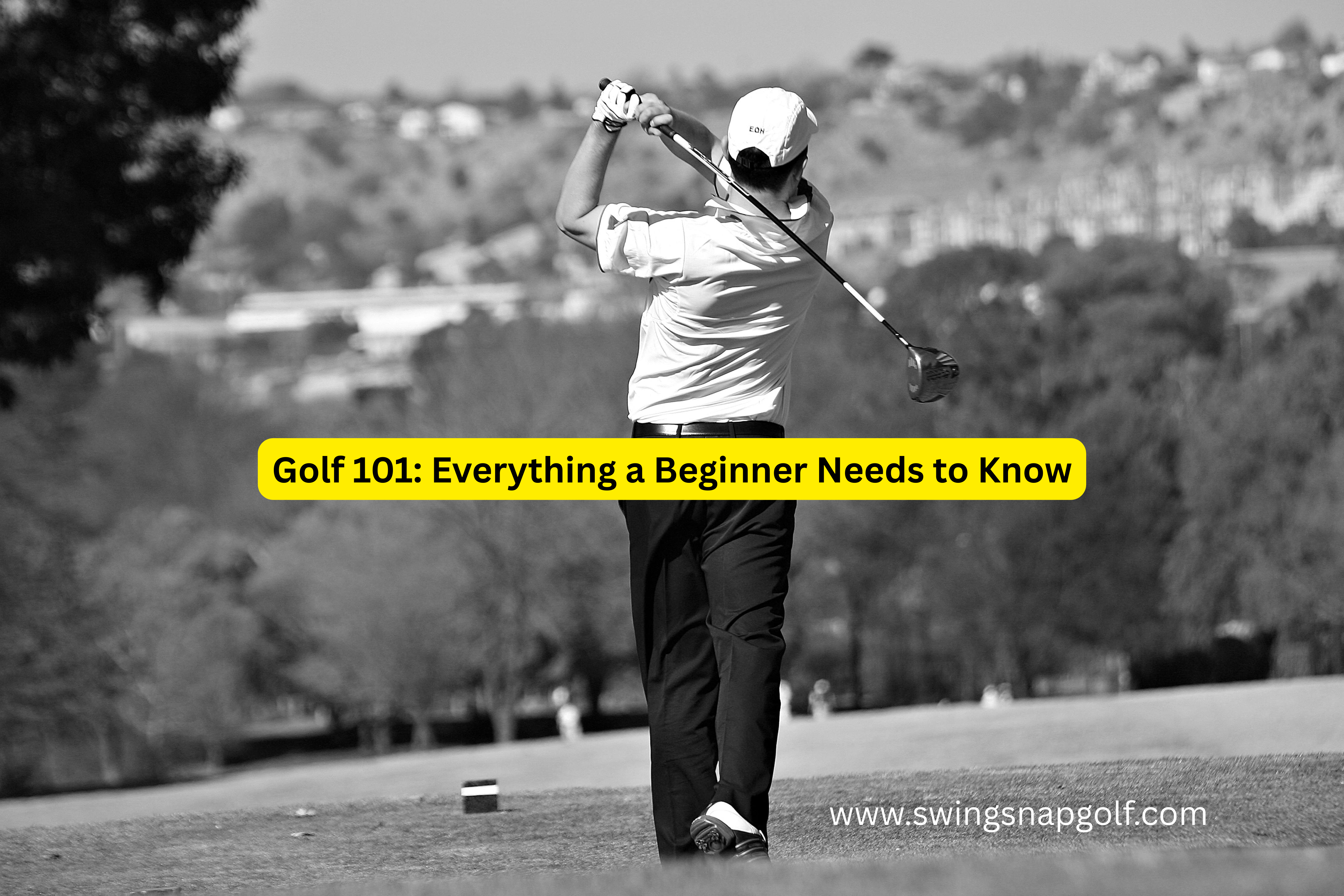
Whether you’re dreaming of teeing off at Augusta or just looking for a relaxing new hobby, golf can be an incredibly rewarding sport. But as a beginner, it can also be overwhelming. From understanding the rules to choosing the right clubs, there’s a lot to learn. Don’t worry — we’ve created the ultimate beginner’s guide to golf to help you get started with confidence.

1. Introduction to Golf
What is golf?
Golf is a sport where players use various clubs to hit a ball into a series of holes on a course in as few strokes as possible. The standard game is played over 18 holes.
Why is golf great for beginners?
-
It’s suitable for all fitness levels
-
It’s social and relaxing
-
It can be played solo or in groups
-
It’s a lifelong skill
2. Basic Golf Rules for Beginners
Understanding How Golf Works
-
Objective: Get the ball from the tee box to the hole in the fewest strokes.
-
Par: The number of strokes a skilled golfer is expected to take.
-
Stroke Play vs Match Play: Stroke play counts total strokes; match play counts holes won.
Key Golf Rules Every Beginner Should Know
-
Play the ball as it lies — don’t move it unless the rules allow.
-
Out of bounds — add a penalty stroke and replay from original position.
-
Lost ball — you have 3 minutes to find it, or it’s a penalty stroke.
👉 Pro Tip: Download the USGA Golf Rules app for quick reference on the course.
7 Best Golf Tees in 2025 Every Golfer Need to Get
3. Golf Etiquette: Do’s and Don’ts on the Course
Do:
-
Be quiet during someone’s swing.
-
Repair your ball marks on the green.
-
Let faster groups play through.
Don’t:
-
Take too long for shots (called “slow play”).
-
Walk in someone’s putting line.
-
Use your phone on the course unless necessary.
Good etiquette is just as important as skill — it shows respect for the game and fellow players.
4. Basic Golf Swing Mechanics
The Four Main Golf Shots:
-
Drive – The long shot off the tee using a driver.
-
Iron shot – For mid-range shots toward the green.
-
Pitch – A short, high shot that lands softly.
-
Putt – A gentle stroke on the green to roll the ball into the hole.
Key Elements of a Good Golf Swing:
-
Grip: Use the overlapping, interlocking, or 10-finger grip.
-
Stance: Shoulder-width feet, knees slightly bent, spine straight.
-
Backswing and Downswing: Smooth motion with a proper weight shift.
-
Follow-through: Finish high for distance and accuracy.
The Future of Golf: Wearable Tech That Improves Your Performance
5. Must-Have Golf Gear for Beginners
You don’t need to break the bank, but a few essentials will dramatically improve your experience.
Essential Golf Equipment for Beginners:
-
Beginner golf club set – Look for complete sets with driver, woods, irons, and putter.
-
Golf balls – Start with affordable options.
-
Golf bag – Lightweight and easy to carry.
-
Golf shoes – With proper grip for stability.
-
Tees – Simple and essential.
-
Glove – Helps improve grip and reduce blisters.
Highly Recommended Accessories:
-
Rangefinder – For accurate distance measurement.
-
Golf towel – To keep your gear clean.
-
Divot tool – For fixing marks on the green.
10 Best Golf Accessories of 2025 – In-Depth Reviews
6. Frequently Asked Questions
How many clubs can a beginner carry?
The rules allow up to 14, but beginners often start with 9–12 clubs.
What is a good golf handicap for beginners?
Beginners usually start with a handicap of 30–40 and improve with time.
Do I need golf lessons as a beginner?
While not required, lessons can significantly accelerate your progress. Many golf courses offer beginner packages.
7. Final Tips for Getting Started
-
Start at a driving range before hitting a full course.
-
Take group lessons or clinics for affordable learning.
-
Play 9-hole rounds to build endurance.
-
Track your progress with a golf app.






